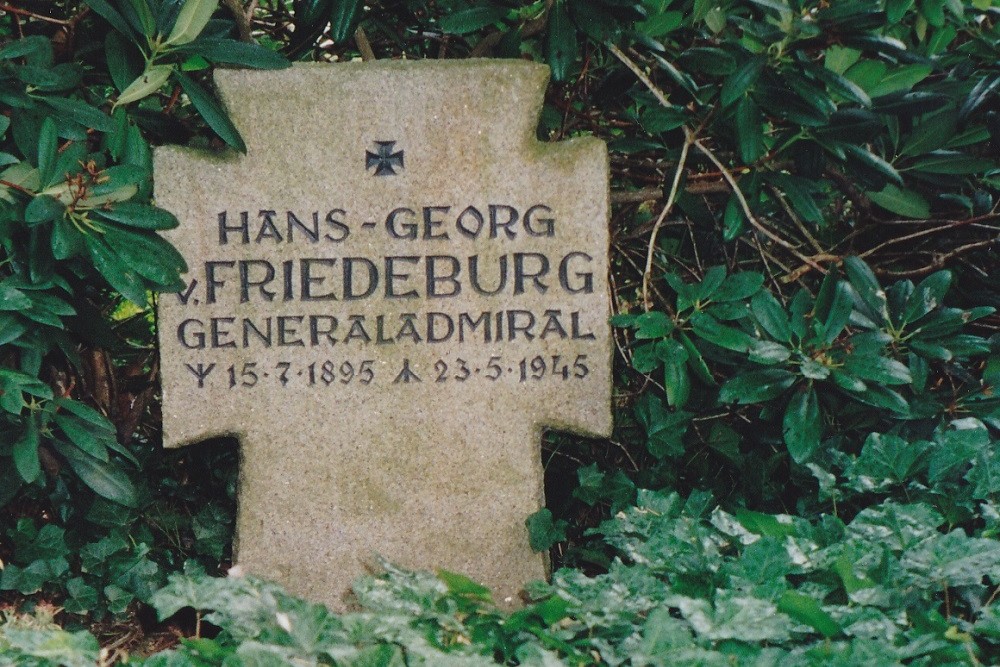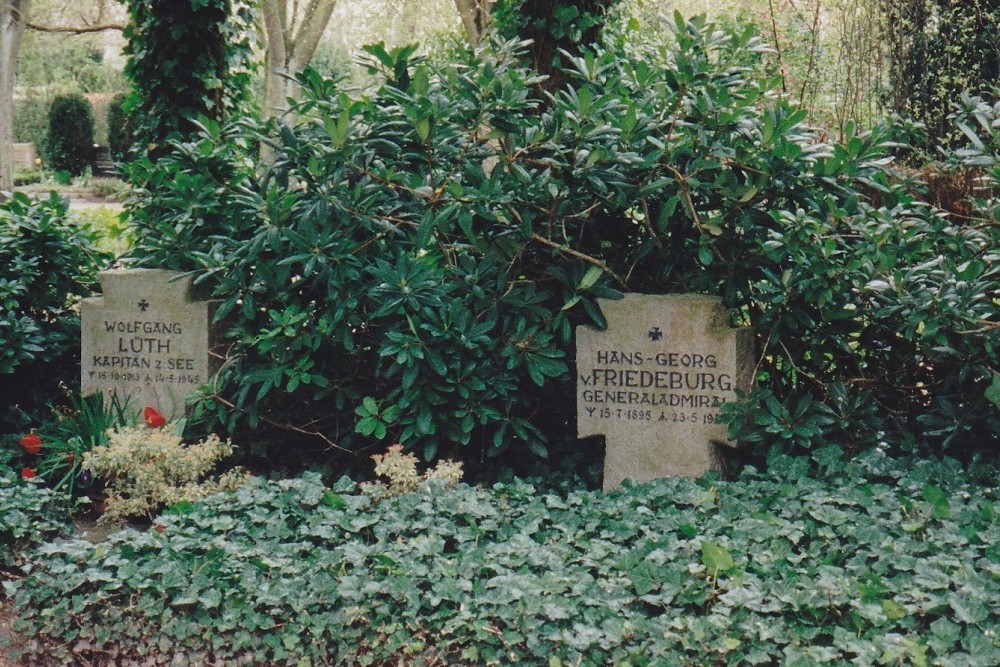Graves Von Friedeburg And Lüth, Flensburg
Graves of Von Friedeburg and Lüth, Flensburg
After Hitler's suicide on April 30, 1945, Grossadmiral Karl Dönitz was appointed Reich President and a cabinet formed. This one was housed in the Marineschule Mürwik, Flensburg. The Flensburger Regierung continued until the leaders were arrested, May 23, but was not officially dissolved until June 5, 1945, when the Allies signed a declaration declaring complete power over Germany vested in them.
Von Friedeburg, son of a Prussian officer, had a long career in the German navy, which began in 1914. Before becoming head of the Kriegsmarine, he was Kommandierenden Admiral der U-Boote. He had two sons who also both served with the U-boat weapon and, unlike many others, also survived. His last position, despite the weighty title, was little more than a wax nose, he had been instructed by Dönitz to supervise the capitulation and to gain time to evacuate as many refugees as possible from the east. He was present at all three partial capitulations, and his signature was on the official document twice. The reception by the Allies was not too friendly, by the way; they had just learned about the horrors in the concentration camps and did not fail to show magazines showing this to the German delegation. Von Friedeburg, probably already with burnout symptoms, was very touched by this. A salient detail was that his grandmother was Jewish, which did not stop him from being a fanatic supporter of National Socialist ideas.
On May 23, 1945, the moment had come when the Allies saw no further use in the temporary government. The leaders were arrested. Von Friedeburg asked if he could get some more stuff, but instead locked himself in the toilet and took a cyanide capsule. He was found quickly, but it was too late. The photographer for LIFE Magazine, Margaret Bourke-White, had it laid on a sofa with a portrait of Dönitz above it. The poignant, if staged photograph, became one of the icons of the disintegrated Third Reich.
Do you have more information about this location? Inform us!
Source
- Text: Maurice Laarman
- Photos: Maurice Laarman
Nearby
Museum
Point of interest
- Staff Building Marinenachrichtenschule Mürwik - Flensburg
- Tillesenhaus Flensburg - Flensburg
- Marinesportschule Flensburg - Flensburg






